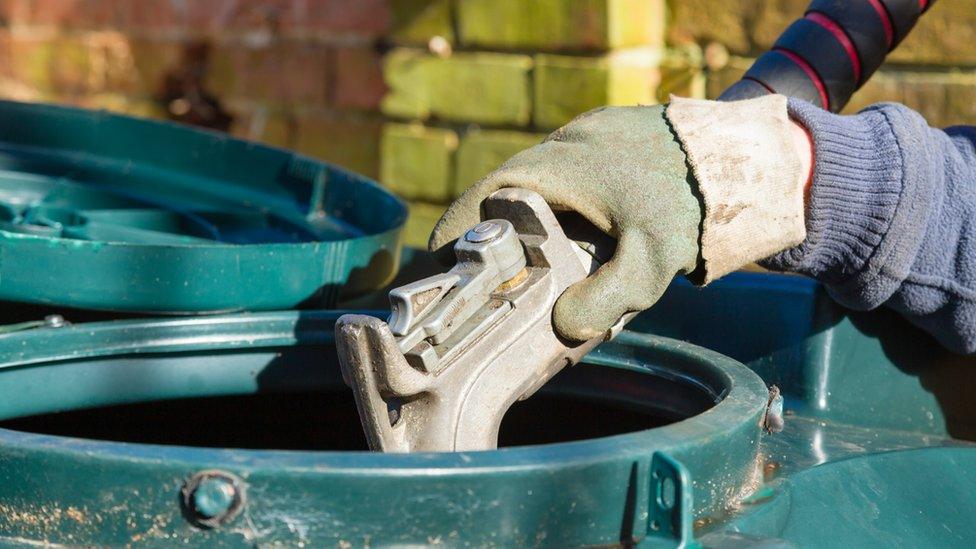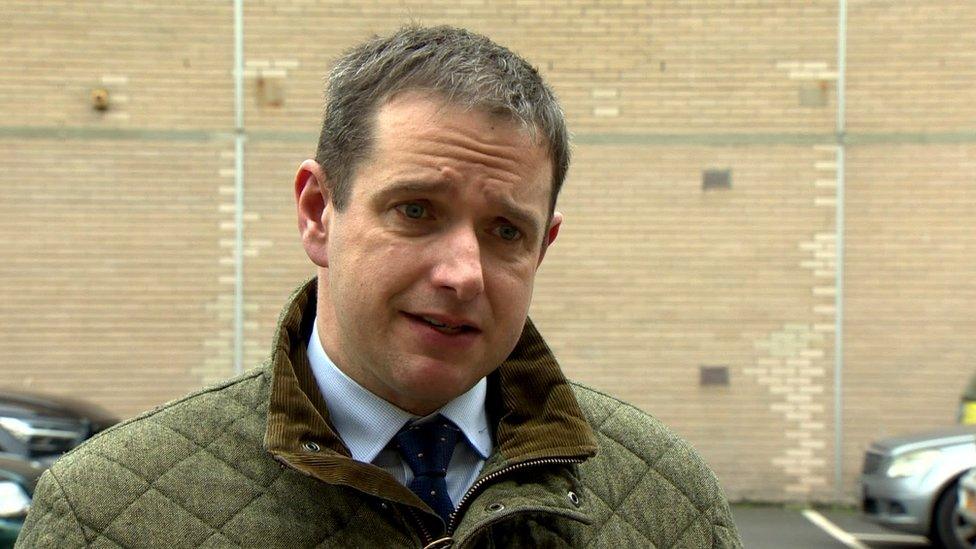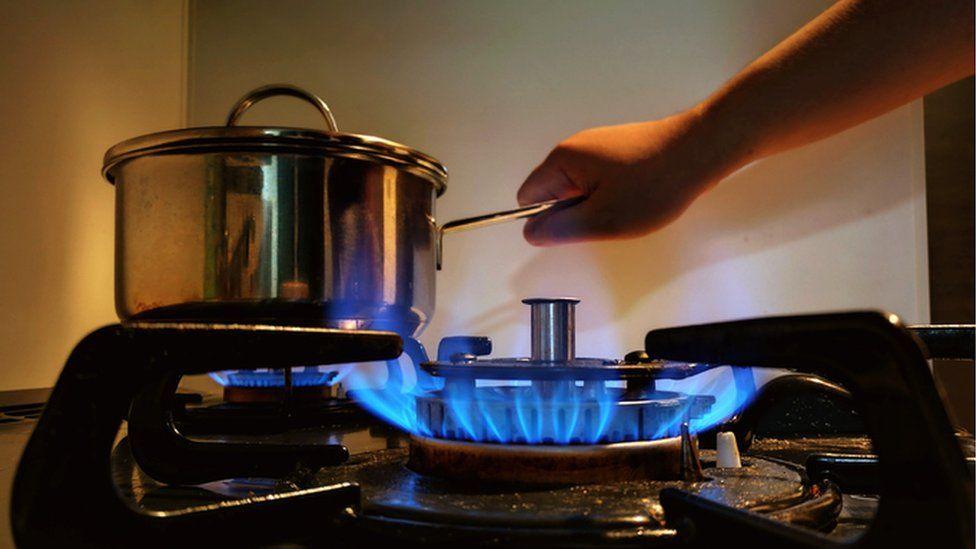Cost of living: Northern Ireland customers need urgent clarity on energy bills
- Published

Northern Ireland's energy regulator says the Firmus Energy rises mean some consumers in Northern Ireland will soon pay similar prices to consumers in GB, if its price cap increase goes ahead on 1 October.
Earlier today Firmus Energy announced a 56.3% price rise across both its networks in Northern Ireland.
John French says the combined regulated electricity and gas bill in the Northern Ireland Ten Towns area will be £3,150 a year from 3 October.
This compares to the price cap in Great Britain, where the combined electricity and gas bill for the average household will be £3,549 a year from 1 October.
However, the new prime minister seems to be aiming for a policy which will mean the GB price cap increase will not happen as planned.
It is understood that a typical energy bill in Great Britain could be capped at about £2,500 with full details expected on Thursday.
So people in Northern Ireland now need some urgent clarity about what will happen to their bills.
Will they increase sharply in 28 days time or will they not?

About two thirds of households in Northern Ireland use home heating oil rather than gas to warm their homes
Northern Ireland is a separate energy market from the rest of the UK with its own rules and its own regulator.
About two thirds of households use home heating oil rather than gas to warm their homes.
At the moment, it is not clear how the planned GB policies could be translated to the Northern Ireland market.
The picture is further complicated by a the lack of a functioning Northern Ireland Executive.

John French says the combined regulated electricity and gas bill in the Northern Ireland Ten Towns area will be £3,150 a year from 3 October
In the normal course of business, increased government spending on energy in GB would generate proportionate extra spending for Northern Ireland.
Stormont ministers would then work with the regulator and energy companies to work up a local scheme.
But with Stormont in semi-suspension, ministers do not have the power to make new spending decisions.
This is already being played out in the saga of the £400 Energy Bill Support Scheme.
GB households will get this via six reductions to bills, starting in October.
Northern Ireland households don't yet know when or how they will get it, though the economy minister has suggested it will be delivered before Christmas.
When a mechanism to deliver the £400 in Northern Ireland is eventually signed off by the Treasury that might provide a template for delivering a GB-style prices freeze.
Related topics
- Published6 September 2022

- Published26 August 2022

- Published17 August 2022
